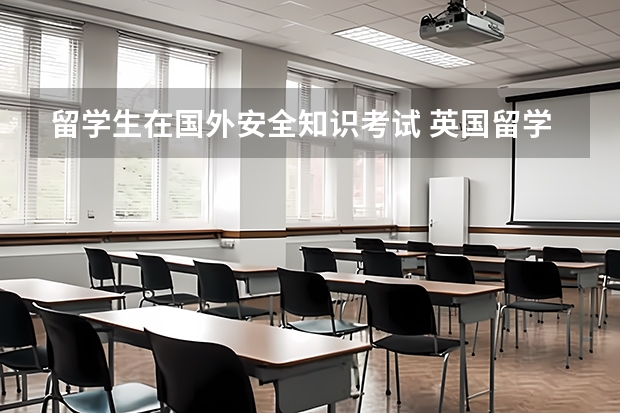雅思考官教你雅思口语PART1考试技巧(雅思口语考试的五个答题技巧)
2024-01-15 18:23:06 | 留学摆渡人
本文目录一览:

雅思考官教你雅思口语PART1考试技巧
上海环球青藤为大家带来一份由雅思考官写的雅思口语part1考试技巧,各位考生可以根据雅思口语考官的建议来准备雅思口语考试。希望对大家雅思口语备考有所帮助。IELTS is set into three sections.Part 1 is generally something about you, where you are from, do you like something, what do you think of something etc.
So you can prepare before the test to answer some of these questions. Of course you can't prepare for all things, as the examiner may throw in a few curve balls (tricky). This exchange of questions is going to be about 5 minutes.
When asked a question, for example, “Where is your hometown?” you might answer“Shanghai” This is correct but hardly a worthy answer that will convince the examiner to expect a lot from you.
Give the place and then say something about it as this shows you can engage in a conversation and not just regurgitate (give) facts and names. Maybe say something about the city, location, size, the fact you might not know much about it because you left at a young age.
“I come from China's largest city Shanghai, on the coast; do you know the area of Minhang in Shanghai? That is the part of Shanghai I was born”
A bit more than just one word.
Chances are you will get a follow up question as this is a conversation and in conversations you garner (get) information from those you are talking too.
“Can you describe… to me” or “How has the city changed” or “What do you like/don't like… about…” or “What are the people like” or "Who lives in your neighbourhood" or"Where do you buy groceries"
Answer how you feel. This isn't a test on facts, if you lie all the way through then be prepared as lying or non-truths can come back to haunt you.
“I come from the state of Nanjing in Beijing, next to India” Completely wrong but no one is taking notes on that. You will get a follow up question about it so chances are you will have todig yourself out of that hole (talk your way out of a lie). The truth is often easier to talk about.
There is a good chance you will also be asked about school or work as that is one of the main questions asked to someone you don't know.
If you are in school then maybe something about enjoying school or not enjoying school or maybe something about a topic in school, why do you study that?
If you are working then questions about what your job might be, how long have you been there, do you like it, will you stay long?
Again you don't have to tell the truth, maybe just half truths in case you feel you shouldn't give out too much information.
“I am an International spy here to assassinate you”
If you feel uncomfortable about a question then, just as in a conversation, say so and give the reason in a polite way. Politeness goes a long way. The examiner will understand as they are nice people and will try to reword the question so it isn't so invasive (direct) but they will also be able to tell if you are saying that just to bypass a question you find difficult or just don't like.
Other questions are likely to be about basic everyday things. Something about your family, neighbours, workmates, perhaps the weather or something to do with food or shopping. These are everyday things, or what you might ask someone you just met. Every question will likely have a follow up related to them. They are direct questions about the topic.
So food questions may deal with local dishes or if you like sweet food or who should do the cooking and why?
Something about your family might be the size of the family, what someone in the family does, your role in the family etc.
Be clear and precise, don't go off topic too much and don't repeat, don't repeat what you want to say. Be yourself, take a deep breath before you speak and if you spend a second thinking about it before you start talking, then nod in acknowledgement to the question. A little dead air for a second or two is fine as that is natural in conversations. A second or two, not five or 10 seconds.
Here are some other topics to think about. You can probably answer questions on them in your native tongue so now practice using English only.
Family, Language, your routine, holidays and festivals, travel, sport, Foreigners in China, Entertainment like TV and reading, cultural areas like art and architecture.
There is something called the 5Ws of Who What Where When Why and How. Basic words used to gather information. Maybe 'Have' and 'Will' should be in there too.
Pick a topic and try making questions using the Ws along with how, have and will. This isn't how questions are chosen but it is good way to practice and to help you anticipate the next question.
Like Sun Tzu says, "If you know your enemies and know yourself, you will not be imperilled in a hundred battles... if you do not know your enemies nor yourself, you will be imperilled in every single battle." The questions are the battle not the examiner.

雅思口语考试的五个答题技巧
对于那些想要在雅思口语考中寻找技巧的同学,我们环球青藤学校老师给你们总结了以下的五个技巧。一、雅思口语中高的回答好在后点明
考题中往往有很多问题是带有高的,但是无论您用的是什么样的拓展方式,都一定要在后点出题目的回答出重点来,切忌说了一大堆,但是后却忘了去对某一点进行特殊强调。提醒一下在回答的过程中也可适当的用一些表述特殊强调的词。
二、雅思口语中地域性的问题回答不能泛泛而谈,要有一些具体的细节地方
有些考题往往有明确的地域性规定。在考场中,环球青藤学校老师发现经常有学生忽略这些限制,比如他们在回答题时只是泛泛而谈一些上海的交通状况,但是却只字未提周围的交通状况。
三、雅思口语中修饰语要紧扣考题
考题中的修饰语通常都是易被考生错过的,其实通常只要一个小小的形容词就已经点明了考题的回答方向。而这样的形容词往往又很容易在考听题时被错过,特别是那些在名词之前出现的一些形容词,经常会被学生当作是不会影响对考题理解的词而被考生自动过滤掉。但是实质上,对于这些词的把握往往会对答题的质量和角度产生决定性的影响。
四、雅思口语中时态细节要把握准确
时态细节可以说是基本的,而且还是考生一定要把握的,如果时态弄错的话将会导致较为严重的后果。但是却有很多的学生本身就对动词的时态变化不够熟悉,所以他们在说的时候更容易混淆的一塌糊涂,所以这点其实也是我们练习的一个重点。特别是过去时,所以我们在考前的时候一定要熟悉基本动词的过去式和过去分词,因为考过去时的考题往往占的比重还是非常之大的。此外一些虚拟语态的考题也有一定的比重,这些也是大多数学生会出现错误的地方。
五、雅思口语中我们要在回答中注意避免中式思维
其实在雅思口语中有很多我们从小说到大的英语并不一定是非常贴切的,所以我们可以适当的学习一些地道式的英语表达,这样的话将会为你的回答增色不少。环球青藤学校老师推荐一个好的办法是多看些原版的电影和书籍,特别是那些较为生活化的情景剧可以多看看,从中我们完全可以学到不少的地道表达方式,从而也可以使我们在雅思口语考回答中听起来地道十足。

雅思口语备考之高频话题
雅思口语第一部分高频雅思口语话题,经常围绕考生的personal information 展开,包括:
家乡背景类介绍,如can you say something different about your hometown。
学习工作类,如what is your opinion about your job/major 。 留学摆渡人
兴趣爱好类,如what do you usually do in your free time 。
经常针对这一类考题所涉及到的话题,最常见的围绕于music, reading, tv, film, sport, internet…
雅思口语第二部分雅思口语话题的考题适当的进行一些延展,可以大体归纳为,衣食住行四大类:
衣-话题,经常围绕于平时喜爱着装的风格进行提问,另外,相应的延展类话题就涉及到了如购物,逛街类的话题,希望同学们要多加注意。
食-话题,如中国传统食物与西方食物的对比介绍,吃饭地点的选择问题,时下受欢迎的饭店的类型,也会更加关注与健康类话题,如:how to lead a healthy life ?
住-话题,住所的类型,小区周围环境,房屋装饰,以及你对于装修风格的品位及态度观点。
行-话题,交通工具类话题,旅游类话题,运动类话题等。
雅思口语第三部分雅思口语话题是围绕第二部分的topic提出的一系列延展类话题,所以重点还是以第二部分为基准,大体归类第二部分考题有五大类:人物类,地点类,事件类,物品类以及高科技类。
人物类侧重于对几类人的提及,famous person, old person, children
地点类则偏向于一个有趣的地方,美丽的地方,有历史风韵的地方等。
事件类围绕发生在你身上最难忘的一件事。
物品类和高科技类有些结合之处,即时下最流行的高科技产品的介绍,或是一个对你很有影响的东西。
高科技类则单纯围绕社会发展中最熟悉的问题进行详细描述。
雅思口语备考之高频话题的内容小编就说到这里了,更多关于 雅思报名 入口,雅思报名时间,雅思成绩查询,报名费用,准考证打印入口及时间等问题,小编会及时更新。希望各位考生都能进入自己的理想院校。
以上就是留学摆渡人小编整理的内容,想要了解更多相关资讯内容敬请关注留学摆渡人。-
 留学生可以报考警察考试吗 开始留学生不得报考公安
留学生可以报考警察考试吗 开始留学生不得报考公安2023-09-06 02:00:23
-
 为什么留学生不用考试 为什么留学生考试,出国留学考那么少?
为什么留学生不用考试 为什么留学生考试,出国留学考那么少?2023-09-07 13:37:40
-
 留学生考试要准备什么 在英国留学需要参考的考试有哪些
留学生考试要准备什么 在英国留学需要参考的考试有哪些2023-09-07 05:50:29
-
 美国留学生在家考试考什么 美国大学可进行“带回家考试”
美国留学生在家考试考什么 美国大学可进行“带回家考试”2023-09-03 11:49:08
-
 留学生在国外安全知识考试 英国留学安全常识
留学生在国外安全知识考试 英国留学安全常识2023-09-03 09:01:07
-
 法国高中留学生入学考试 法国留学具备的条件有哪些?
法国高中留学生入学考试 法国留学具备的条件有哪些?2023-09-02 16:21:00